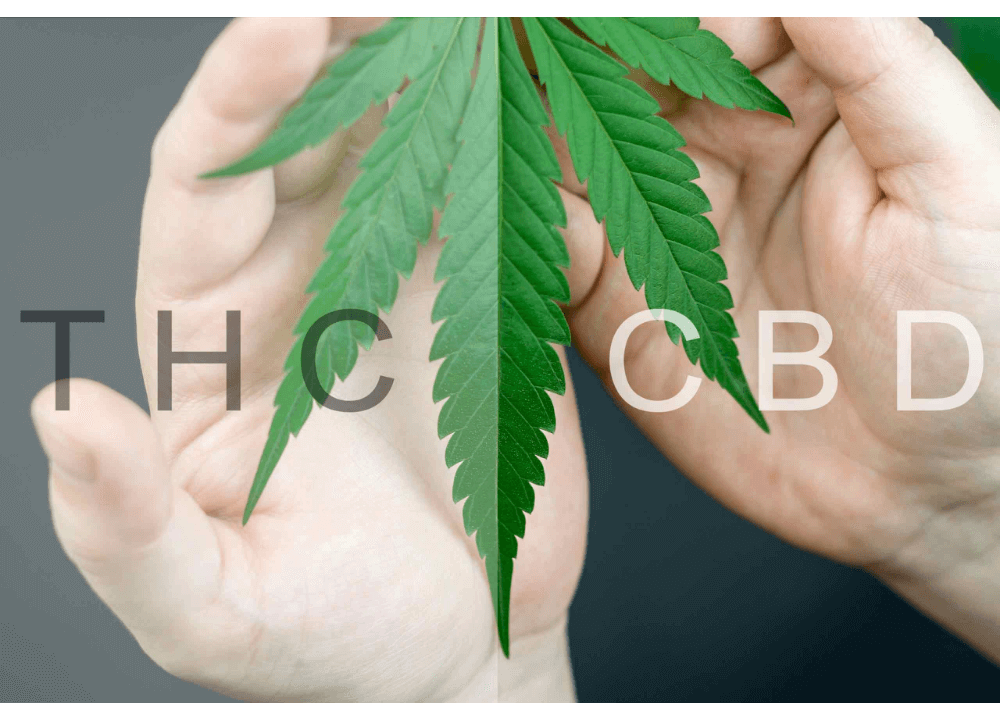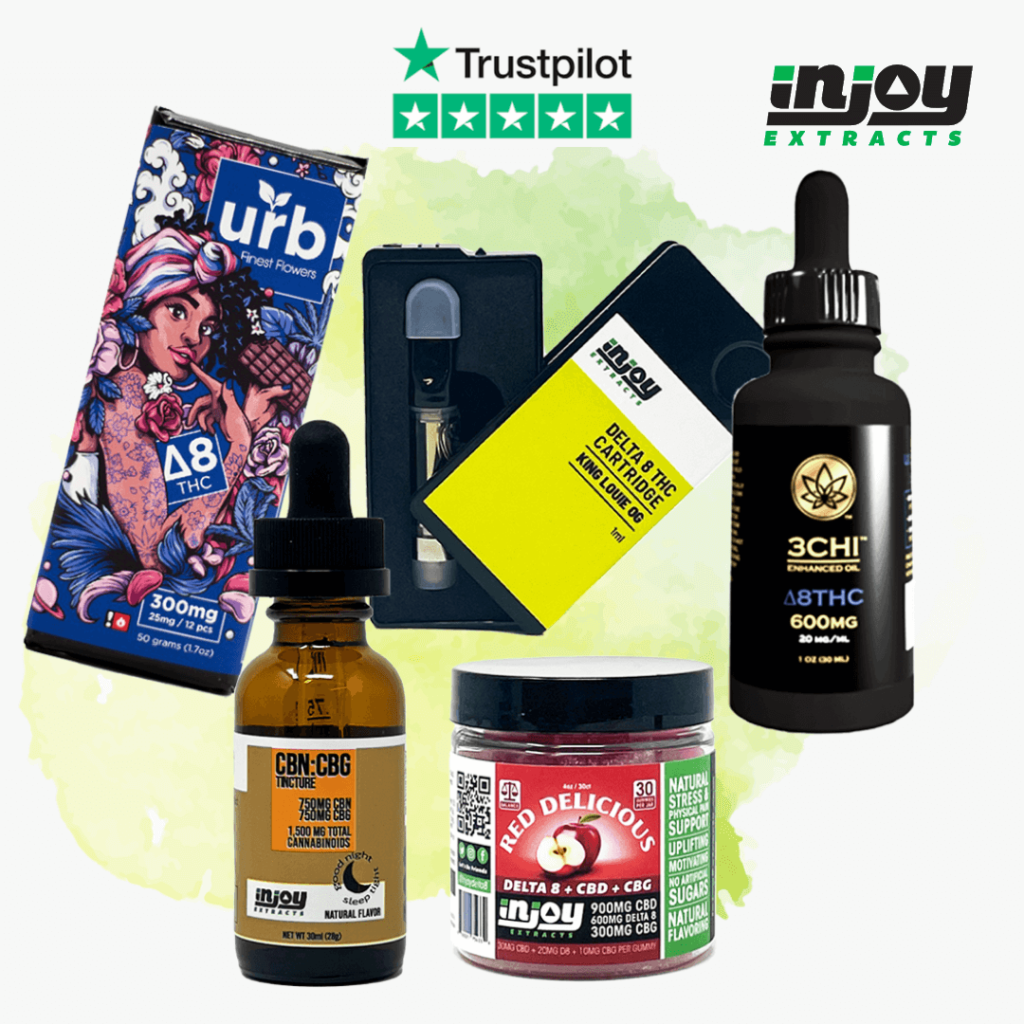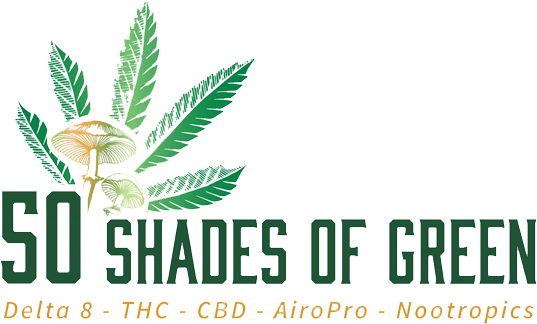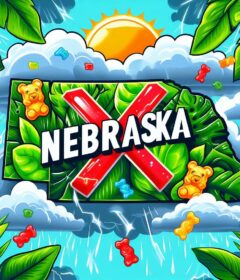Delta-8 THC Draws Lines Through Hemp and CBD Industries

The molecular map of cannabinoids stretches far and wide, and laboratories are manipulating them faster than the law can track.
Chemists have discovered how to create forms of THC that are chemically different from Delta-9 THC — the form of THC largely produced in cannabis — but carry similar intoxicating effects. Delta-8 and Delta-10 THC aren’t explicitly outlawed by the Controlled Substances Act, and they can be produced with industrial hemp, a plant now legally grown at the federal level. (This is done by extracting CBD from industrial hemp and then converting the CBD into the “new” forms of THC with acetic acid.)
But the emergence of Delta-8 and Delta-10 products has caused a divide among the marijuana and hemp industries, with some pouncing on a fast-growing unregulated market and others pushing for more regulations. Earlier this month, the state Marijuana Enforcement Division got involved, announcing that any products with modified or synthetic cannabinoids derived from hemp

To learn more about the hemp industry’s ongoing relationship with modified cannabinoids, we caught up with Hemp Industries Association president Rick Trojan, whose Industrial Hemp Farms company has jumped fully aboard the Delta-8 train.
Rick Trojan: Probably the third or fourth quarter of 2020. I heard about the medical benefits of it and saw research that it was successfully given to children with cancer in the ’90s. Then I saw it was being marketed as a hemp cannabinoid, and in January or February of this year, it started really gaining traction for me.
As someone making and selling these products, do you view Delta-8 as a medical or recreational product?
I view it as a minor cannabinoid, like many others such as CBG, CBN or CBC. It’s naturally occurring in the plant; it’s used for anxiety and pain relief. I think it’s a fantastic cannabinoid that has a lot of benefits. We should study it more so we have a better understanding of dosages and its effects on the body.
When you come across this “new” cannabinoid, do you feel there’s enough information out there for people to be consuming it on a mass scale?
We’re still learning about the endocannabinoid system. There are trained doctors who have no idea that it’s a real system in the body, which is amazing in 2021. So we need to learn more about it — not only Delta-8 THC, but CBD and Delta-9 THC, too. People get fixated on the ‘intoxicating” word, but the reality is that a lot of things are intoxicating. That word isn’t medically or clinically defined, so it shouldn’t be a word that’s legally defined. Some people can drink too much orange juice and get sick. The amount of different products can be intoxicating for different people; I mean, beauty can be intoxicating. So I think we need a more science-based and human-based approach to learn more and gain benefits of this cannabinoid.
Do you see Delta-8 as a long-term play for the hemp industry? Where is this all going to end up?
I hope it’s a long-term play. It’s been very beneficial to the hemp industry, and it essentially saved the over-supply of CBD isolate and hemp biomass. We had a ton of production in 2018 and 2019, and a lot of that oversupply was just sitting in farms and labs. The Delta-8 [market] has utilized that excess inventory.
It benefits a lot of people. It is anti-anxiety and doesn’t have the paranoia that can come with other cannabinoids. I hope it stays around. I think legislators are uneducated about it, though, and what they fear, they sometimes want to prohibit. We know prohibition has never worked. It took CBD, what — five years for them to realize that it’s not marijuana? My hope is all cannabinoids on hemp stay legal and accessible, and off the Controlled Substances Act, because that’s not where they belong.
So you don’t think Delta-8 should be regulated like Delta-9?
No. Legally, it’s not on the CSA list. Even though Delta-9 has health benefits and doesn’t belong there, either, that’s where it is. Delta-8, Delta-10, THC-V, CBD, CBN are not, and they’re explicitly not on the CSA list after the 2018 Farm Bill [the federal legislation legalizing hemp].
Has this cannabinoid manipulation in the lab been going on for a while, or is this relatively recent?
It’s interesting, isn’t it? I just found out about Delta-8 last year, but people have been studying it since the ’60s, and there is patent and clinical research that’s been tabulated since the ’90s. Its medicinal benefits have been known for about twenty-plus years, but we’re just starting to market it. I think the same holds true for other cannabinoids that we’re still learning about. Altogether, the entourage effect makes sense, but as we’re isolating them, we might find cannabinoids that provide different benefits.
Are you worried about a marijuana industry pushback against hemp-derived Delta-8?
Absolutely. The reality is, it’s the same plant, and [governments] are having the hemp and marijuana sides fight each other for an arbitrary line of demarcation over a Delta-8 cannabinoid. The whole thing is arbitrary, but it creates infighting in the industry so we can’t tackle the real issues. This is a safe drug, and doesn’t belong on the CSA list at all.
Are you seeing a shift in interest and dollars from CBD to Delta-8?
From a revenue standpoint, Delta-8 is a much bigger revenue generator in 2021 than CBD. I expect that to continue if the states stay out of the way. It’s a new cannabinoid, and it’s just like when CBD came out. People went crazy, and [all] people wanted to talk about was CBD. That’s Delta-8 right now, and when the next one comes out, we’ll probably see people want to talk about that, too.
Based on conversations with your peers, how do you think the hemp and CBD industries feel about Delta-8?
It’s a very divisive issue at the moment. You have association members and strategic partners divided on this issue. That doesn’t mean they can’t play on everything else, but there are some folks on the hemp side who think we should focus on fiber and grain only, and others that think anything from hemp could be a potential product. It’s always boiled down to the economics of it.
Reference: Westworld




